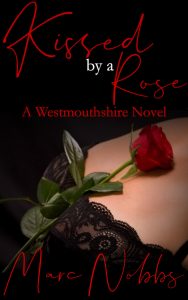
Some say that to be a good writer, you need to be a good reader.
I’m not a great reader. I’m a decent reader, but I’m not great. I know people who read upwards of two hundred novels a year – that’s over four a week! I’m more like one every four weeks – there’s too much else demanding of my time if I’m honest, but I do enjoy reading, and I read when I can, even if it’s just half an hour or an hour a day.
On the loo is a good time and place to read given there’s a Kindle app for your phone, but I digress.
So I want to talk a little bit today about a book I’m reading right now.
The thing is, as a writer, I find it hard to read without that Internal Editor reading along with me and doing the same job it does when I write.
I’m talking on a “macro” level here rather than a “micro”, so it’s not as if I’m re-writing sentence structure or adding/removing commas or that sort of thing. It’s more that I find myself very aware of the various techniques that the author is using, of the overall structure of the plot, and of the character development.
Now, that’s fine, usually. It’s not so fine when the author is using a technique (or even multiple techniques) that I find annoying as a writer.
Particularly if as a writer I feel the author is overusing those techniques.
One of the reasons I’m like this now is that back in the day I was an active member of Desdmona’s Fishtank – a website where hobbyist authors like me would gather and share early drafts of their work – mostly short stories rather than novels – and offer each other encouragement and constructive criticism. This is where I first began to learn my craft – probably about twenty years ago now. I learned from the other authors there and, crucially for what I’m talking about today, I learned how to analyse a piece of writing and evaluate what’s good about it, what’s bad, and what could be improved.
This skill set is, or would be, useful for reviewing stories – something I don’t do very often. I did do a review late last year of a story on StoriesOnline. It was a particularly “controversial” story set in the near future and the author had specifically asked for “honest” reviews given how much of the discussion about the story was critical of the politics within it rather than the story.
I think I did a decent job of my review, which you can read here.
Anyway, back to the book I’m reading at the moment. I’m not going to name either the book or the author, but anyone that’s familiar with StoriesOnline will probably recognise it once I’ve described it anyway.
It’s the seventh (and we’re told final) book in a series about a teenage sex god – well, he’s a teenager at the start of the series. And he doesn’t start out as a sex god either, he learns to become one over the series. As well as the seven “main” books, there are 12 other stories, most of which are “background” or on the periphery of the main plot, filling in some of the blanks.
The series is over four and a half million words in total across all 19 titles. The seven main titles range from about three hundred thousand words for the first two, to over one and a quarter million for the final one.
And that’s my first issue with this last book – the sheer length. The first of quite a few issues, if I’m honest, but let’s look at novel length in this post and save my other issues with this book for another day.
Now, I need to start by pointing out that truly “Epic” length works are nothing unusual on StoriesOnline. If you do a search of all the stories on the site and order them by descending length, you find that every story on the first page is over one and a half million words. The two longest are over four million and the third longest is just under that mark.
As an aside, that longest story, Arlene & Jeff, began posting in 2006 and completed in 2022 – that’s a sixteen-year serial.
That is the very definition of Epic
Back to story length. The story this post is about sits in the mid-twenties on that list of longest stories – the third page of the search – so, like I said, it’s not that unusual for StoriesOnline.
But compare it with the other novels in the series and, crucially, commercially published fiction, and it very much is.
The first two books in the series were about three hundred thousand words – which is still very long by commercial publishing standards. The longest of the seven Harry Potter books, for example, was Order of the Phoenix at about two hundred and fifty thousand words. The longest of the three Lord of the Rings books is Fellowship of the Ring at “just” one hundred and eighty thousand.
The first two novels in this series are of a similar length to the first couple of books of George RR Martin’s A Song of Ice & Fire books.
The next two books in the series up the word count to about half a million – about half (ish) as long again as the first two. Now we’re in the same ballpark as books that make up the lower places on “Top Ten Longest Novels” lists – the likes of Infinite Jest by David Foster Wallace and Atlas Shrugged by Ayn Rand.
Tolstoy’s War & Peace is about five hundred and eighty thousand, but that was originally written in Russian, of course. Victor Hugo’s Les Miserables (originally written in French, obviously) is about five hundred and fifty thousand words.
Pushing on, the fifth book in the series goes up again to almost eight hundred thousand words – that’s about an Order of the Pheonix shorter than Samuel Richardson’s Clarissa – generally regarded as the longest English language novel still in print at over nine hundred and fifty thousand words.
(Apparently, there is a longer novel – Sironia, Texas by Madison Cooper – but this is out of print and quite hard to get hold of.)
The sixth book in the series drops back down to the half-a-million-word mark – which I think I’ve already shown is a really, really long novel.
And then we get to this last book, which comes in at one and a quarter million words.
One and a Quarter Million.
Remember that out-of-print book I mentioned above – Sironia, Texas? That’s one million, one hundred thousand words – a typical novel shorter than this seventh book in this series.
If this book were a “trade paperback” it would probably be in the order of two and a half thousand pages and about five inches thick.
It’s a really, really, really long novel.
To add a little context, the average reading speed for most adults is between two hundred and four hundred words per minute. Let’s go with the mid-point of the range at three hundred wpm. That’s eighteen thousand words an hour.
Here’s how long it would take to read some of the books I’ve mentioned so far in this post at three hundred words per minute.
- The Fellowship of the Ring – 10 hours
- Harry Potter & The Order of the Pheonix – 14 hours
- Books 1 & 2 of this series – 17 hours
- Books 3 & 4 of this series – 28 hours
- Les Miserables or War & Peace – 31 hours
- Book 5 of this series – 44 hours
- Clarissa – 53 Hours
- Sironia, Texas – 61 hours
- Book 7 of this series – 69 hours
Sixty-nine hours is one hell of a commitment. It’s three full days of reading with just an hour’s break each day. It’s nearly ten full “working days” (9 – 5 with an hour’s lunch break). It’s nearly ten weeks if you can snatch is an hour a day (that’s two and a half months). It’s seven times longer than it would take to read the longest Lord of the Rings novel.
It’s a really long time.
And that’s at an “average” reading speed (which frankly, I’m not convinced is accurate. I got the speed from a quick Google search, but it’s not something I’ve tested at all)
So setting out to read this book is already a really long commitment. And given that to read book seven, you will need to have read most of (if not all) the previous main books and side books, which is over three million words or one hundred and eighty hours, it’s an even bigger commitment.
And if you have read the previous three million words, you really want to find out how the story ends and so need, deep down in your bones, to read all the way to the end.
This story started posting on SOL in October last year and finished this past June. That’s nine months. It’s seventy-eight chapters including two prologues and an epilogue.
I waited until it had finished posting so that I could download the ePub from SOL and send it to my Kindle. I’m currently on chapter twenty-eight. I’m not even close to halfway through and it already feels like it’s all I’ve been reading, and that I’ve been reading it forever. It’s starting to feel like a hard slog and I’m not sure how long it’s going to take me to finish it – or even if I will finish it.
I know I really shouldn’t complain about a story I get to read for free, and I’m not really complaining. Not really. I’m expressing my frustration.
I’ll dig more into my frustrations with the story in another post later, but the main one in terms of the length is that it really doesn’t feel like the story needs to be this long.
There’s an awful lot of what I (and that’s me, expressing my opinion) think are extraneous sex scenes – scenes that don’t really progress the plot or develop the characters. I find myself rolling my eyes and “skim reading” these sections and wondering just how much shorter, how much tighter, the story would be without them.
Then there’s a technique the author is (over)using that I’ll expand on in that other post I plan to write that feels as if its sole purpose is to increase the word count.
Don’t get me wrong, it’s a good story, with a compelling plot and interesting, developed characters. It’s generally well written and I have enjoyed the series to date very much. These “issues” I have are mine and they are “niggles”. But they are frustrating, and that’s a shame.
This series – this story – is a Good Thing. I just find myself wondering if there’s too much of it.














